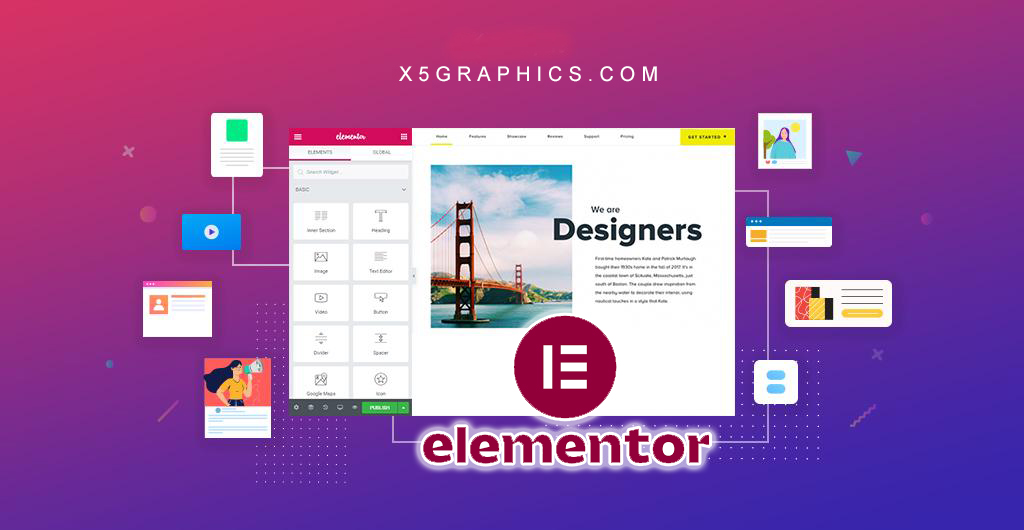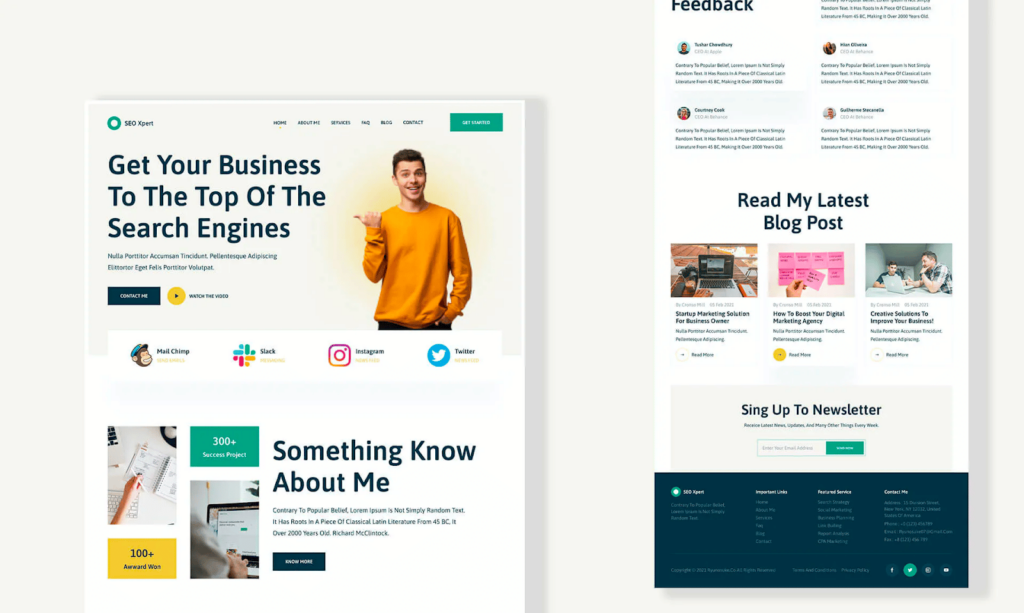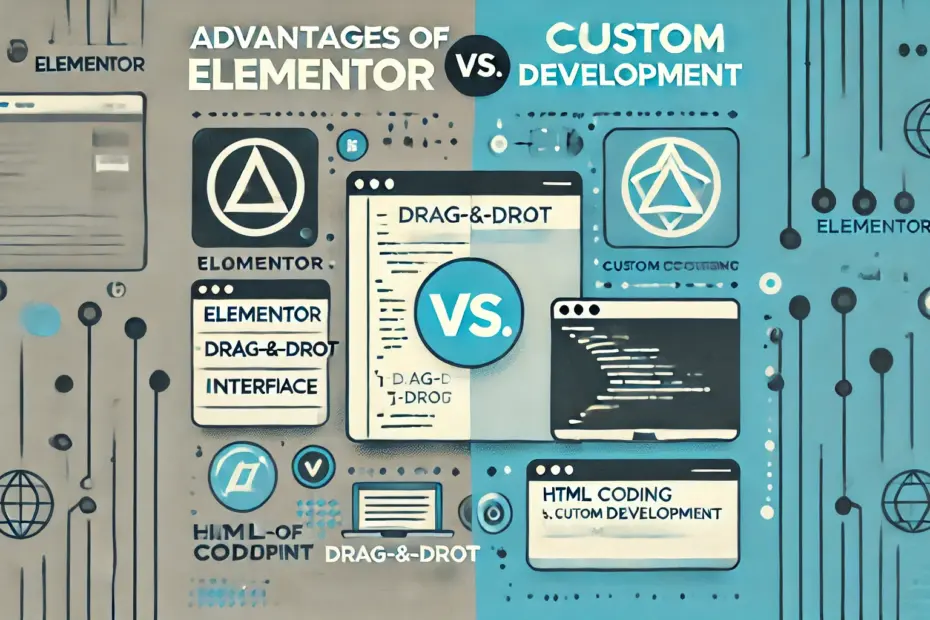When it comes to building and maintaining websites, there are several approaches one can take. Two popular methods are using Elementor, a page builder for WordPress, and custom development, which involves coding a site from scratch. Each method has its own set of advantages and disadvantages, depending on the project's requirements, the skill level of the developer, and the specific needs of the business. This article aims to explore the advantages of both Elementor and custom development, helping you make an informed decision for your next web project.
Advantages of Elementor vs. Custom Development
When comparing the advantages of Elementor vs. custom development, it is essential to consider factors such as speed, cost, flexibility, and control. Elementor offers a faster and more cost-effective solution for creating websites with its user-friendly drag-and-drop interface, making it ideal for small to medium-sized projects. In contrast, custom development provides greater control and customization, allowing for highly tailored and scalable solutions, which can be crucial for larger and more complex projects.

Speed and Efficiency
Elementor:
- Quick Setup: Elementor's pre-designed templates and blocks make it easy to set up a site in a matter of hours rather than days or weeks.
- Ease of Use: No coding knowledge is required, which makes it accessible to a broader audience, including marketers and designers.
Custom Development:
- Tailored Solutions: Custom development allows for solutions specifically designed to meet the unique needs of the business.
- Performance Optimization: Code can be optimized for speed and efficiency, reducing load times and improving user experience.
Cost-Effective
Elementor:
- Lower Development Costs: Eliminates the need for expensive custom development, making it ideal for startups and small businesses.
- Maintenance Savings: Elementor's updates and community support ensure that the site remains functional without significant additional costs.
Custom Development:
- Long-Term Investment: While the initial cost may be higher, custom development can result in lower long-term maintenance costs as it eliminates the need for many third-party plugins.
- Value for Money: Provides a solution that is precisely tailored to the business needs, offering potentially higher ROI.

Flexibility and Customization
Elementor:
- Custom Widgets: Create custom widgets and save them for reuse across multiple pages.
- Integration: Seamlessly integrates with popular plugins like WooCommerce, Yoast SEO, and others to enhance functionality.
Custom Development:
- Unlimited Customization: Offers complete control over every aspect of the website.
- Advanced Functionality: Easier to implement complex features and custom integrations with other systems.
User-Friendly Interface
Elementor:
- Live Editing: Changes can be seen in real-time, making the design process more interactive and engaging.
- Responsive Design: Built-in tools for ensuring that sites are mobile-friendly without additional coding.
Custom Development:
- Developer-Focused Tools: Allows for more advanced development environments and tools tailored to the developer’s workflow.
- Custom Interfaces: Developers can create admin interfaces that are tailored to the needs of the website’s content managers.
Additional Considerations
Hybrid Approach
Combining the strengths of both Elementor and custom development can be a viable approach. Using Elementor for rapid prototyping and initial design, followed by custom development for specific functionalities, can offer the best of both worlds.
Team Skill Set
The decision between Elementor and custom development often depends on the skill set of the team. If the team has strong coding skills, custom development might be the preferred choice. For teams with more design and content management expertise, Elementor can be more advantageous.
Project Requirements
Evaluate the project's specific requirements before deciding on the approach. For simple, content-driven sites, Elementor might be sufficient. For complex, functionality-heavy sites, custom development could be necessary.
Case Studies
Case Study 1: Small Business Website with Elementor
A small local bakery wanted to establish an online presence quickly. Using Elementor, they were able to set up a professional-looking website within a week. The site included features like an online menu, photo gallery, and contact form. The bakery's team, with no coding experience, could easily manage and update the site.
Case Study 2: Custom Development for a Large E-Commerce Platform
A large e-commerce company required a robust platform capable of handling thousands of products and high traffic volumes. Custom development was chosen to ensure the site could meet specific performance requirements and integrate seamlessly with the company’s inventory management system. The result was a highly optimized, scalable website tailored to the company's unique needs.
SEO Considerations
Elementor and SEO
Elementor offers SEO-friendly features, such as the ability to add meta tags, optimize images, and use clean URLs. However, users need to be mindful of performance issues, as page builders can sometimes add unnecessary code that might slow down the site.
Custom Development and SEO
Custom development allows for complete control over the site’s structure and code, enabling more precise SEO optimizations. Developers can implement advanced SEO strategies, such as schema markup, custom metadata, and optimized loading times, directly into the code.
Performance Analysis
Elementor Performance
Elementor can sometimes add extra bloat to the website, which can impact performance. However, with careful optimization, such as using caching plugins and minimizing the use of additional widgets, a well-performing site can still be achieved.
Custom Development Performance
Custom-developed sites generally perform better because the code is tailored specifically to the site’s needs. There is no unnecessary bloat, and developers can optimize every aspect of the site to ensure fast load times and efficient performance.
User Experience
Elementor and User Experience
Elementor provides a user-friendly interface that allows for real-time editing and immediate feedback, which can enhance the design process. However, the final user experience depends on how well the site is optimized.
Custom Development and User Experience
Custom development allows for a more tailored user experience, as every element can be designed and coded to meet specific requirements. This often results in a more seamless and engaging experience for the end-user.
Time to Market
Elementor Time to Market
Elementor significantly reduces the time to market, allowing for rapid prototyping and deployment. This can be crucial for businesses needing to launch quickly or make frequent updates.
Custom Development Time to Market
Custom development generally takes longer due to the detailed planning and coding required. However, the extra time investment often results in a more robust and tailored solution.
Community and Support
Elementor Community and Support
Elementor has a large and active community, with numerous tutorials, forums, and add-ons available. This makes it easier to find help and resources for troubleshooting and extending functionality.
Custom Development Community and Support
Custom development relies more on the skills and experience of the developer. While there are communities and resources available for developers, the support network is less centralized compared to Elementor.
Future Trends
Trends in Page Builders
Page builders like Elementor continue to evolve, with new features and integrations being added regularly. The trend is towards more user-friendly and versatile tools that can cater to a wide range of users.
Trends in Custom Development
Custom development is also evolving, with new frameworks and technologies making it easier to build and maintain complex websites. There is a growing emphasis on performance, security, and scalability.
Developer Experience
Insights from Elementor Users
Developers who use Elementor appreciate the speed and ease of use but often mention performance concerns and limitations in customization. Many recommend it for small to medium projects where quick deployment is essential.
Insights from Custom Developers
Custom developers value the control and flexibility that come with coding from scratch. They highlight the benefits of optimized performance and security but acknowledge the longer development time and higher costs.
FAQ
Q: Is Elementor suitable for all types of websites?
A: Elementor is best suited for small to medium-sized websites where quick setup and ease of use are priorities. For highly complex or large-scale projects, custom development might be more appropriate.
Q: Can I use custom code with Elementor?
A: Yes, you can add custom code to Elementor through custom widgets or by using the HTML widget. This allows you to extend functionality and tailor the site to specific needs.
Q: How does Elementor impact SEO?
A: Elementor provides SEO-friendly features, but users need to be mindful of potential performance issues. Optimizing images, using clean URLs, and minimizing additional widgets can help maintain good SEO practices.
Q: Is custom development more expensive than using Elementor?
A: Generally, custom development is more expensive due to the need for skilled developers and the time required to build and maintain the site. However, it offers greater control and customization.
Q: Can I switch from Elementor to a custom-developed site later?
A: Yes, it is possible to switch from Elementor to a custom-developed site. However, this can be a complex process and may require significant redevelopment work.
Conclusion
Both Elementor and custom development have their own advantages, and the choice between them should be based on the specific needs of the project, the team's expertise, and the long-term goals of the business. By understanding the strengths and limitations of each approach, businesses can make an informed decision that best supports their online presence and growth.
Resources
How to Set Up and Optimize Your First WordPress Site: A Beginner’s Guide
Best File Format For Website Images
Top 7 Online Courses for Learning Graphic Design
Best Image Compressor



